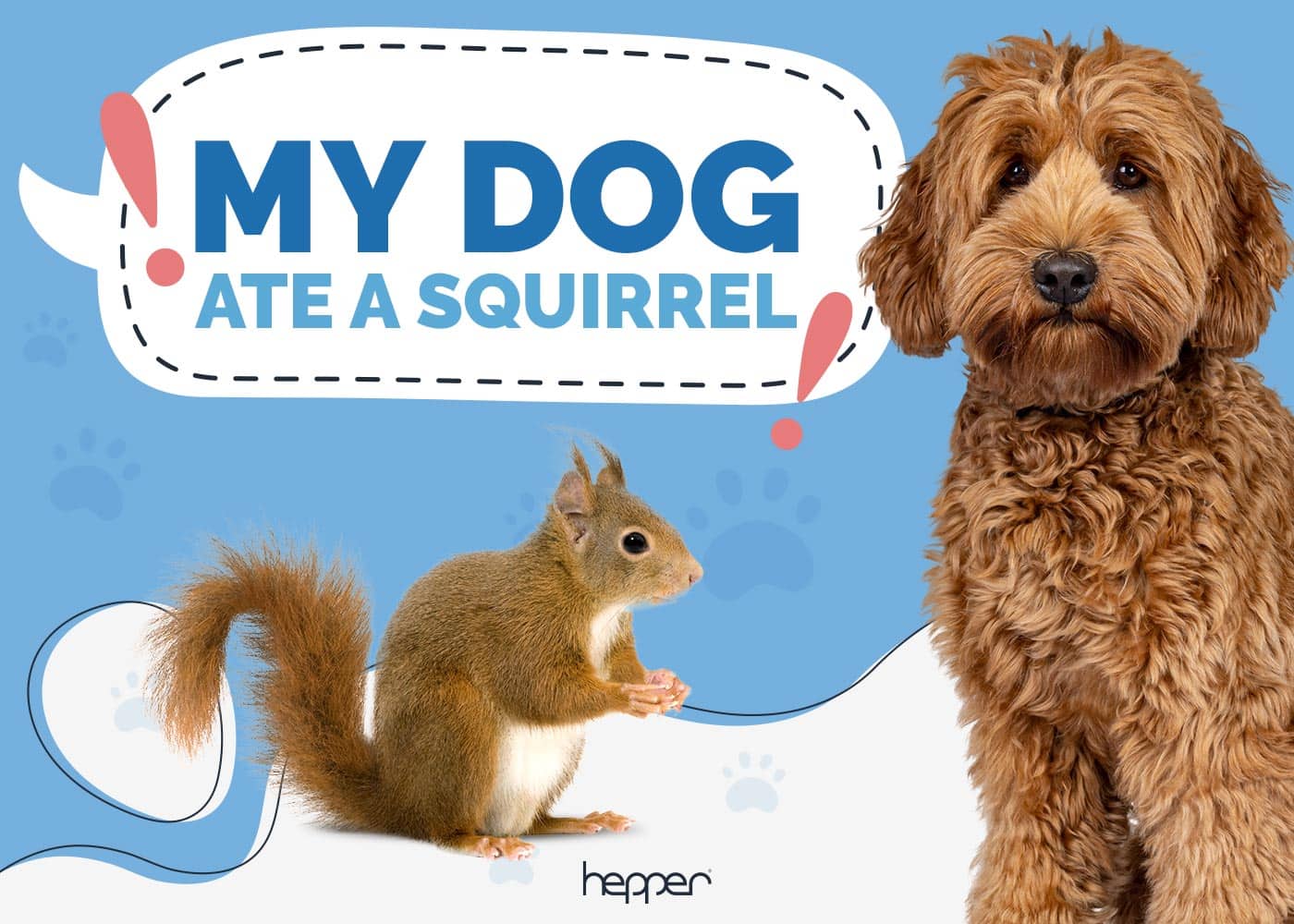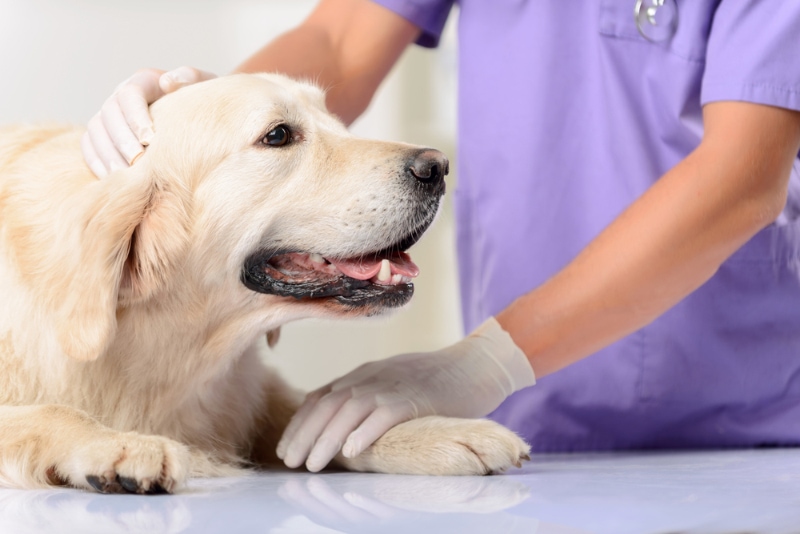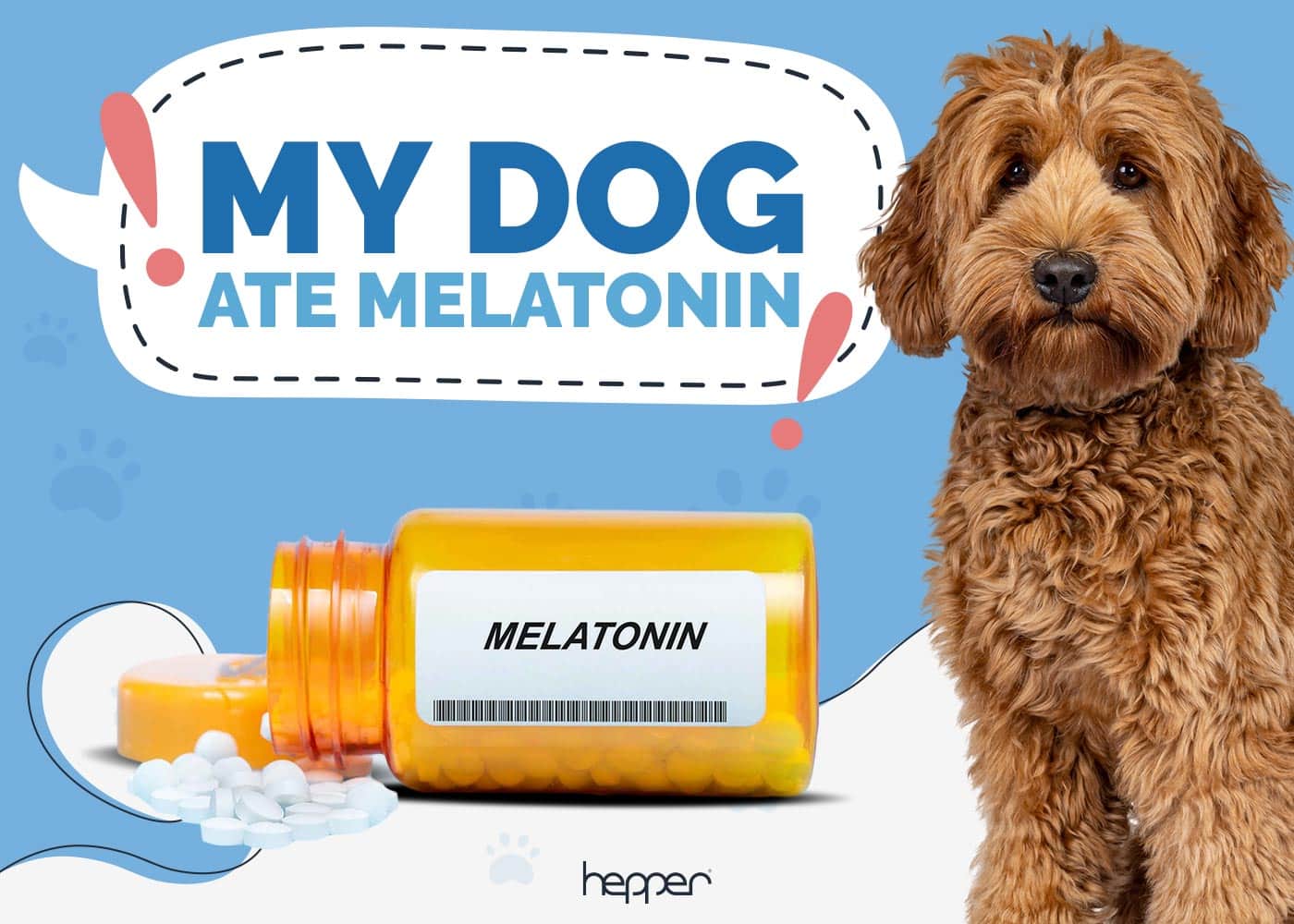My Dog Ate a Squirrel: Here’s What to Do (Vet Answer)
By Dr. Sharon Butzke, DVM (Vet)
Updated on

Chasing squirrels is probably a pretty ideal pastime in the minds of most dogs! The furry little rodents are quick and typically able to evade our canine friends, but what happens if they catch one? Or if they stumble across the remains of a dead squirrel and gobble it up before we can stop them?
There are a few concerns associated with both of these scenarios, but in most cases, the likelihood of a significant problem is low. If your dog has just eaten all or part of a squirrel, here is our step-by-step guide for what to do next.
What to Do if Your Dog Has Eaten a Squirrel
1. Don’t Panic
In most cases, no immediate action is needed, but if you have any concerns about your pup’s health, do not hesitate to contact a veterinarian.
- Your dog appears to be choking, or part of the squirrel is stuck in their mouth or throat
- Your pup has a visible injury from grappling with the squirrel (e.g., bite or scratch wound near their eye)
- You have reason to suspect the squirrel had rabies or died from rodenticide poisoning (i.e., eating mouse or rat bait)
2. Do Not Attempt to Induce Vomiting Unless Recommended By Your Veterinarian
If your pup has eaten all or part of a squirrel, most vets would probably advise against inducing vomiting (either at home or at the clinic). The risks of aspirating (breathing in) vomited material or suffering an injury to the esophagus from the squirrel carcass likely outweigh the risks associated with letting it pass through.
An exception would be if you suspect the squirrel might have died from rodenticide poisoning (i.e., mouse or rat bait) because the products can also be highly toxic to dogs.
If your dog finds a dead squirrel somewhere, contact your veterinarian immediately.
3. Check Your Pup for Wounds
They may be small, but squirrels have sharp nails and teeth that can injure dogs during a scuffle. Check your pup carefully for any evidence of scratch or bite wounds, especially on their face.
Wounds can be painful for your dog and may become infected, so it is a good idea to have any injuries checked out by a vet.

4. Make Sure Your Pup’s Vaccinations Are Up to Date
Rabies
Rabies might be one of the first diseases that came to mind after realizing your dog ate a squirrel. Fortunately, the likelihood of contracting rabies from a squirrel in the United States is pretty low. A large study examined the records of 21,977 squirrels submitted for rabies testing between 1995 and 2010 and found that only 9 of them (0.04%) were positive1.
However, rabies is a serious (almost always fatal) disease, so it is best to play it safe! Check your pup’s vaccination records or contact your veterinarian’s office to confirm their rabies vaccine is up-to-date.
If your pup needs a booster vaccine, it should be given as soon as possible after eating the squirrel.
If your dog has never been vaccinated against rabies and there is reason to suspect the squirrel they ate was rabid, additional steps may be required (e.g., quarantine).
Leptospirosis
In some areas, wildlife (including squirrels) can transmit a bacterial disease called leptospirosis. Ask your veterinarian if your pup should be vaccinated against this disease, which can also affect people.
5. Monitor Your Pup for Signs of Gastrointestinal (GI) Upset
Your dog may experience gastrointestinal (GI) upset after eating a squirrel.
- Squirrels can carry Salmonella, which, just like in people, can cause food-poisoning
- If your pup chewed the squirrel before swallowing it, sharp bone fragments can irritate (and possibly puncture) the stomach or intestines on their way through
- If your dog swallowed the squirrel whole, it could get stuck somewhere in the GI tract and cause a blockage
Your vet may recommend taking an X-ray of your pup’s abdomen or just ask you to monitor them closely for a few days.
- Decreased appetite
- Vomiting
- Changes in their bowel habits (e.g., diarrhea, constipation, blood in their poop)
- Lethargy
- Tenderness in their abdomen
If you notice any of these signs or have any other concerns, please contact a veterinarian.
6. Talk to Your Veterinarian About Treatment for Parasites
Squirrels can carry fleas, ticks, and intestinal parasites like roundworms and tapeworms, some of which can also be transmitted to people. If your pup already takes parasite prevention medication regularly, they may not need any additional treatment.
If not, your veterinarian will likely prescribe an external parasite treatment and a few doses of broad-spectrum deworming medication or a combination product that covers external and internal parasites.
Veterinary products are very safe and generally more effective than those available over the counter for treating parasites. Be sure to give all doses according to your vet’s directions.

7. Clean Up and Dispose of Any Squirrel Remains
If you find all or part of a dead squirrel in your yard, handle it safely. Many parasites and diseases they can carry also affect people! Do not handle the body without wearing gloves or, better yet, use a shovel to pick it up and put it in a plastic bag.
Some municipalities may allow you to dispose of the squirrel in your regular garbage, but check your local regulations to be sure.
Conclusion
Even though many dogs enjoy chasing squirrels, the activity is not without risk, especially if they manage to catch and eat one. It’s best to keep a close eye on them when they are outside. If they spend time off-leash, make sure they have good recall and teach them commands like “leave it” so you can stop them from picking up potentially dangerous items or animals. Also, vaccinate them against rabies and leptospirosis (if recommended by your veterinarian) and treat them regularly for parasites.
Featured Image Credit: alexei_tm, Shutterstock












